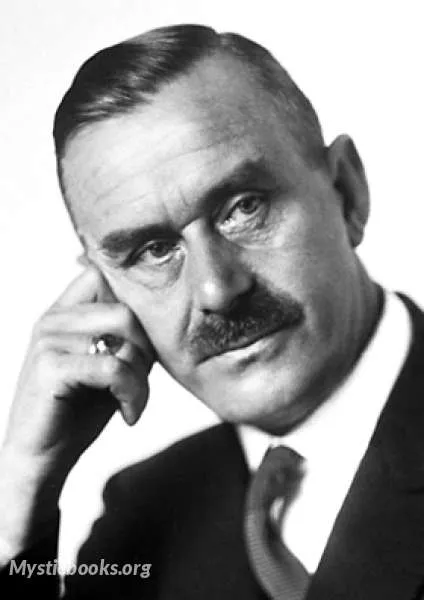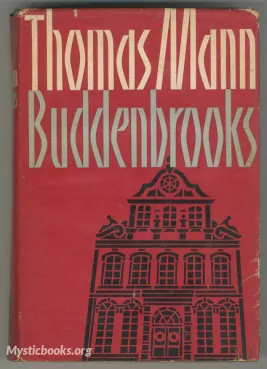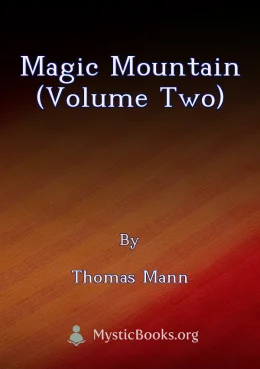
Timeline
Title
Country/Nationality
Thomas Mann
Paul Thomas Mann was a German novelist, short story writer, social critic, philanthropist, essayist, and the 1929 Nobel Prize in Literature laureate. His highly symbolic and ironic epic novels and novellas are noted for their insight into the psychology of the artist and the intellectual. His analysis and critique of the European and German soul used modernized versions of German and Biblical stories, as well as the ideas of Johann Wolfgang von Goethe, Friedrich Nietzsche, and Arthur Schopenhauer.
Paul Thomas Mann was born to a bourgeois family in Lübeck, the second son of Thomas Johann Heinrich Mann (a senator and a grain merchant) and his wife Júlia da Silva Bruhns, a Brazilian woman of German and Portuguese ancestry, who emigrated to Germany with her family when she was seven years old. His mother was Roman Catholic but Mann was baptised into his father's Lutheran religion. Mann's father died in 1891, and after that his trading firm was liquidated. The family subsequently moved to Munich. Mann first studied science at a Lübeck Gymnasium (secondary school), then attended the Ludwig Maximillians University of Munich as well as the Technical University of Munich, where, in preparation for a journalism career, he studied history, economics, art history and literature.
Mann lived in Munich from 1891 until 1933, with the exception of a year spent in Palestrina, Italy, with his elder brother, the novelist Heinrich. Thomas worked at the South German Fire Insurance Company in 1894–95. His career as a writer began when he wrote for the magazine Simplicissimus. Mann's first short story, "Little Mr Friedemann" (Der Kleine Herr Friedemann), was published in 1898.
In 1905, Mann married Katia Pringsheim, who came from a wealthy, secular Jewish industrialist family. She later joined the Lutheran church. The couple had six children.
In 1912, he and his wife moved to a sanatorium in Davos, Switzerland, which was to inspire his 1924 novel The Magic Mountain. He was also appalled by the risk of international confrontation between Germany and France, following the Agadir Crisis in Morocco, and later by the outbreak of the First World War.
In 1933, while travelling in the South of France, Mann heard from his eldest children Klaus and Erika in Munich, that it would not be safe for him to return to Germany. The family (except these two children) emigrated to Küsnacht, near Zürich, Switzerland, but received Czechoslovak citizenship and a passport in 1936. In 1939, following the German occupation of Czechoslovakia, he emigrated to the United States. He moved to Princeton, New Jersey, where he lived on 65 Stockton Street and began to teach at Princeton University. In 1942, the Mann family moved to 1550 San Remo Drive in the Pacific Palisades neighborhood of Los Angeles, California. The Manns were prominent members of the German expatriate community of Los Angeles, and would frequently meet other emigres at the house of Salka and Bertold Viertel in Santa Monica, and at the Villa Aurora, the home of fellow German exile Lion Feuchtwanger. On 23 June 1944 Thomas Mann was naturalized as a citizen of the United States. The Manns lived in Los Angeles until 1952.
The outbreak of World War II on 1 September 1939, prompted Mann to offer anti-Nazi speeches (in German) to the German people via the BBC. In October 1940 he began monthly broadcasts, recorded in the U.S. and flown to London, where the BBC broadcast them to Germany on the longwave band. In these eight-minute addresses, Mann condemned Hitler and his "paladins" as crude philistines completely out of touch with European culture. In one noted speech he said, "The war is horrible, but it has the advantage of keeping Hitler from making speeches about culture."
Following his 80th birthday, Mann went on vacation to Noordwijk (the Netherlands). On 18 July 1955, he began to experience pain and unilateral swelling in his left leg. The condition of thrombophlebitis was diagnosed by Dr. Mulders from Leiden and confirmed by Dr. Wilhelm Löffler. Mann was transported to a Zürich hospital, but soon developed a state of shock (circulatory). On 12 August 1955, he died.
Books by Thomas Mann

Bashan And I
Simple and unpretentious as a statement by Francis d’Assisi, yet full of a gentle modern sophistication and humour, this little work will bring delight and refreshment to all who seek flight from the heavy-laden hour. It is, moreover, one of the most...

Death in Venice
Death in Venice is a novella by German author Thomas Mann, published in 1912. It presents an ennobled writer who visits Venice and is liberated, uplifted, and then increasingly obsessed by the sight of a Polish tourist, Tadzio, so nicknamed for Tadeu...

Buddenbrooks
It follows the story of four generations of the Buddenbrook family, beginning in the mid-19th century and ending in the early 20th century. The novel follows the family's gradual decline in prestige and social standing as they struggle to maintain th...

The Magic Mountain (Volume One)
Step into a world of intrigue and intellectual exploration in "The Magic Mountain" by Thomas Mann, Volume One. As the world teeters on the brink of World War I, follow the enigmatic journey of Hans Castorp, a young man who finds himself amidst the la...

Royal Highness
Royal Highness follows the story of Prince Klaus Heinrich, heir to a dwindling German duchy, and his encounters with an American heiress who becomes his neighbor. The novel delves into the complexities of a European society teetering on the brink of...

Magic Mountain (Volume Two)
Thomas Mann's Magic Mountain is a complex and multi-layered novel that explores the themes of society, decay, corruption, sickness, and death. Set in a luxurious sanatorium high up in the Swiss mountains, the novel follows the destinies of a variety...